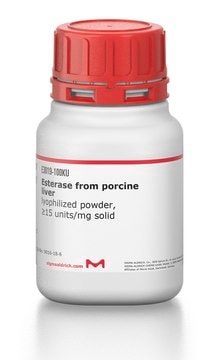96466
Zinc carbonate basic
purum p.a., ≥58% Zn basis (KT)
Synonym(s):
Zinc hydroxide carbonate
About This Item
Recommended Products
grade
purum p.a.
form
powder
concentration
≥58% Zn (KT)
solubility
water: insoluble
anion traces
chloride (Cl-): ≤500 mg/kg
sulfate (SO42-): ≤5000 mg/kg
cation traces
Ca: ≤5000 mg/kg
Cd: ≤50 mg/kg
Co: ≤50 mg/kg
Cu: ≤50 mg/kg
Fe: ≤200 mg/kg
K: ≤200 mg/kg
Na: ≤1000 mg/kg
Ni: ≤50 mg/kg
Pb: ≤50 mg/kg
SMILES string
[Zn++].[Zn++].O[Zn]O.O[Zn]O.O[Zn]O.[O-]C([O-])=O.[O-]C([O-])=O
InChI
1S/2CH2O3.6H2O.5Zn/c2*2-1(3)4;;;;;;;;;;;/h2*(H2,2,3,4);6*1H2;;;;;/q;;;;;;;;5*+2/p-10
InChI key
UOURRHZRLGCVDA-UHFFFAOYSA-D
Looking for similar products? Visit Product Comparison Guide
Application
Storage Class Code
11 - Combustible Solids
WGK
WGK 2
Flash Point(F)
Not applicable
Flash Point(C)
Not applicable
Certificates of Analysis (COA)
Search for Certificates of Analysis (COA) by entering the products Lot/Batch Number. Lot and Batch Numbers can be found on a product’s label following the words ‘Lot’ or ‘Batch’.
Already Own This Product?
Find documentation for the products that you have recently purchased in the Document Library.
Customers Also Viewed
Our team of scientists has experience in all areas of research including Life Science, Material Science, Chemical Synthesis, Chromatography, Analytical and many others.
Contact Technical Service











